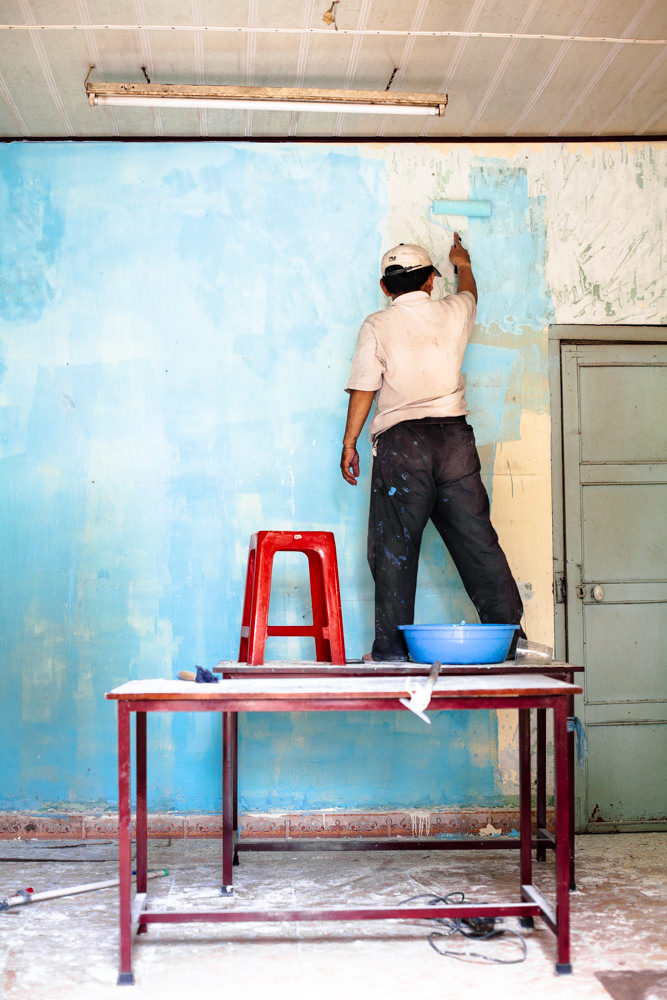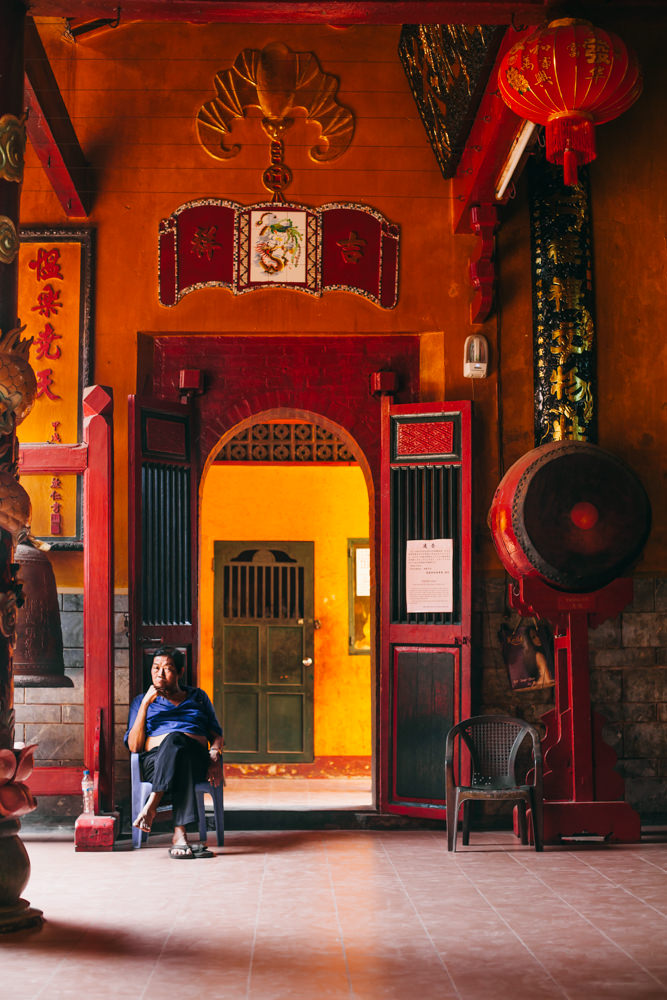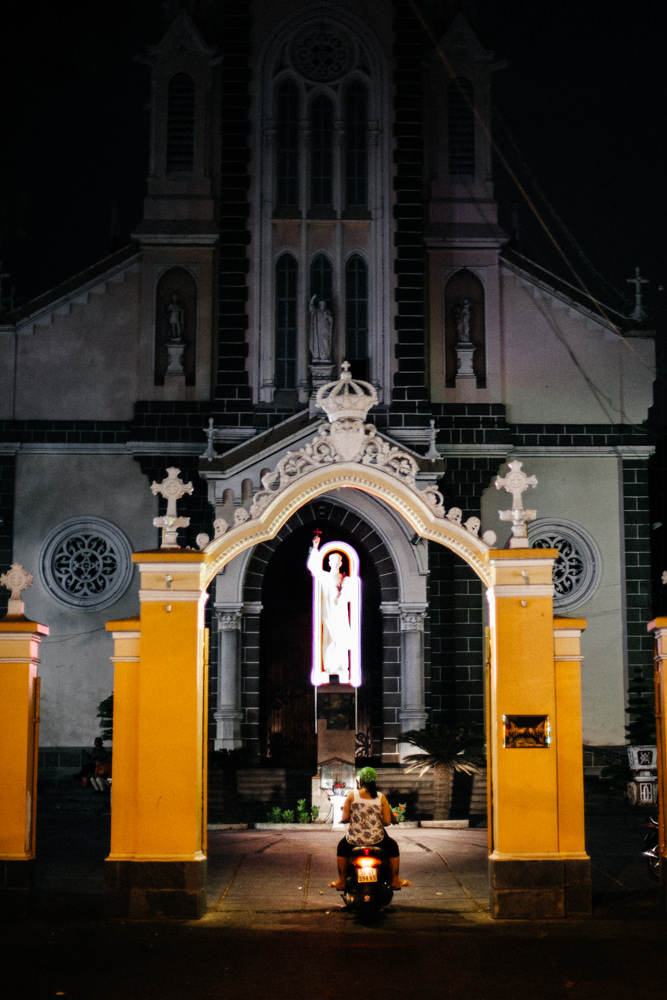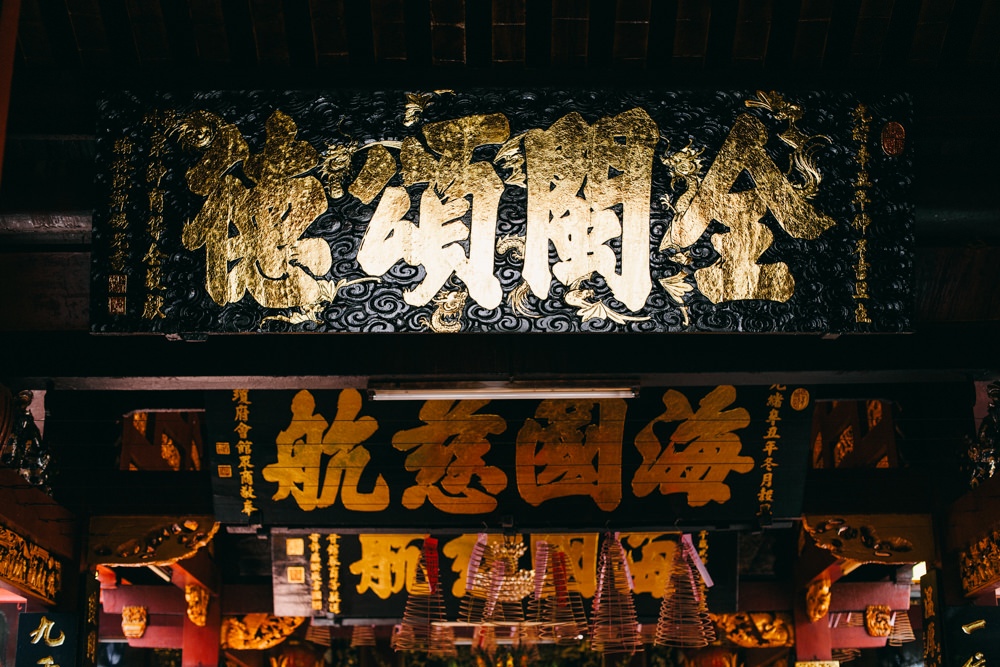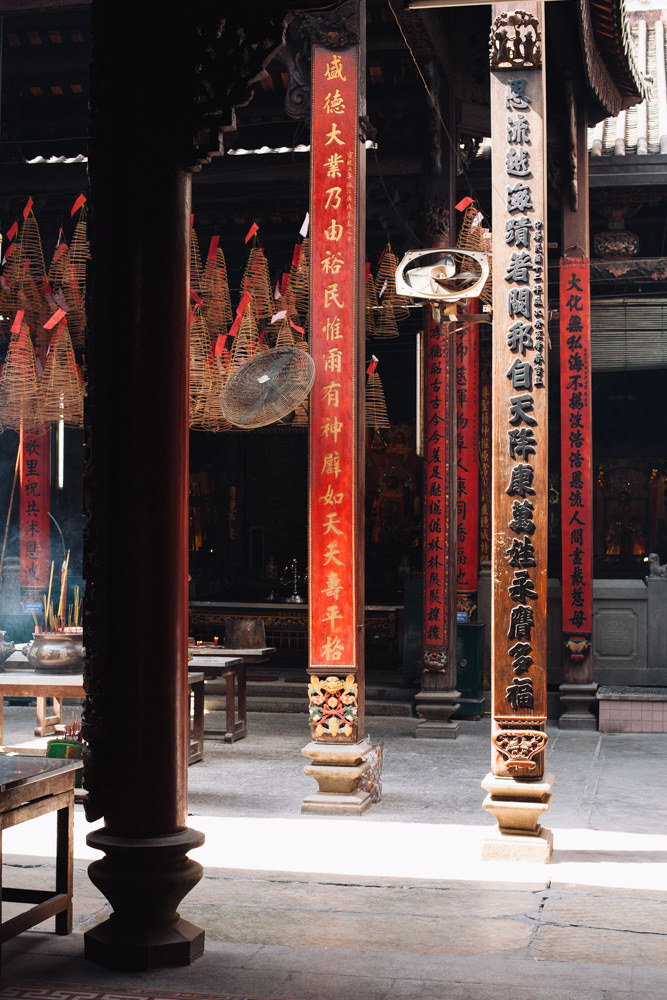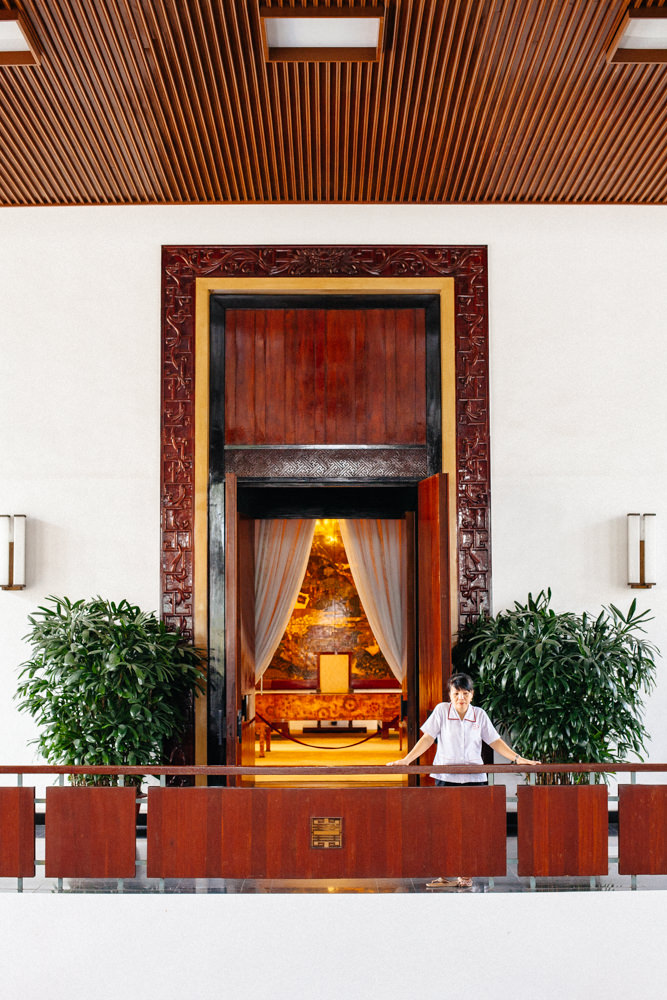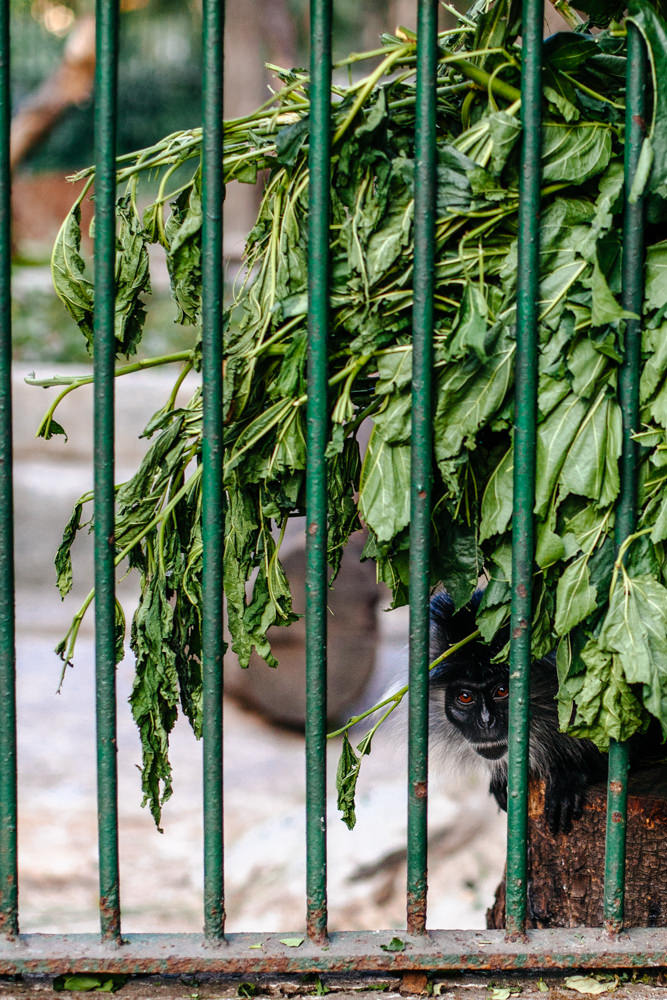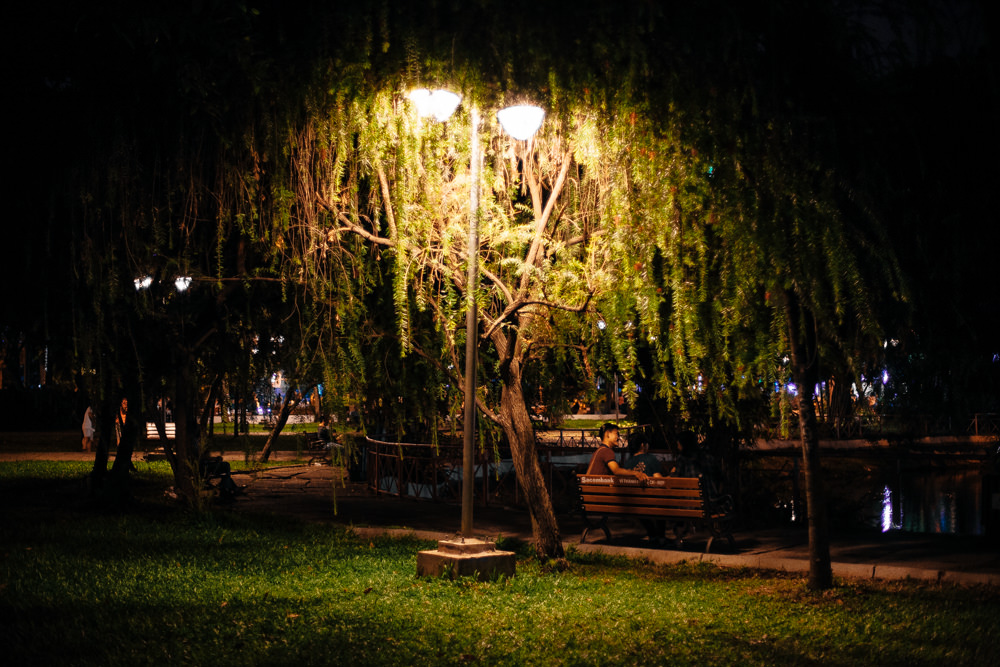In late March, a friend and I visited Ho Chi Minh City (a.k.a. Saigon or HCMC). I had wanted to go for a long time.
When I was a child, my Dad and his high school classes compiled oral histories of people affected by the Vietnam War in our little corner of Wisconsin. Also, some family members and many of my neighbors were veterans of that war (called, by the Americans 'The Vietnam War' and by the Vietnamese, 'The American War' or the 'American War of Aggression'). At that time, the prospect of a trip to Vietnam was very different, the Vietnamese reforms of Doi Moi having not yet made a ideological impact on tourism. And yet, when I was young I had known more, or at least had heard more, about "Vietnam" than any other country in Asia - unfortunately only because of the war. Additionally, La Crosse, Wisconsin, my hometown, was the home of many refugees (my Dad taught many of their children in a separate class for ESOL at the local high school). Their origins - from Vietnam, Cambodia and Laos - helped remind us that the war was not just in Vietnam.
This month is the 40th anniversary of the end of that war. When I walked around HCMC, I could still see many parts of life and society affected by the war. Discussing my intense emotional feelings and thoughts about The War (to the detriment of describing Vietnam the country), can reinforce what was done to a lot of us when we were children - it equated Vietnam and The War as one and the same. That's not to say that we should forget The War and its aftermath - for that, it's discussed with much more clarity and experience by others. [For instance, Viet Thanh Nguyen's recent editorial Our Vietnam War Never Ended is a perspective that should be seen by many eyes.] Alternatively, it is to remember that there is more to Vietnam than The War and more to The War than Vietnam. This trip helped take away decades of that imagination and helped me start to see it more clearly as another culture and community.
And an incredible place it was. It reminded me of something an Indonesian friend said, "there's something about being nearer to the equator." That many people in a warm climate packed together in a metropolitan community has a type of energy and strength that I've rarely experienced in cooler climates.
Certainly, as a casual and brief visitor to any country, there are many dangers in describing things as they seem at first. That being said, much of what we see, experience and say is superficial as well as the photos we take. The reality, as always, is only attainable by experience. The rest are imperfect references.
Below are a small collection of photos and field recordings - which I will use as very imperfect references - of my time in Ho Chi Minh City. It shows a bit of the amazing parks in the city (almost always full of people and action), some beautiful places of worship, and a few other locations, people and animals I saw along the way.
In addition to taking photos, ever since a 2006 trip to Japan, I've been doing field recordings while I travel. So here I will include just a few, for atmospheric interest. The details and setting are listed below the audio.
In the center of the city is Tao Dan Park, a beautiful and inspiring public space (the photo of the three animals above is from the Chinese temple inside the park). It's full of people, including a perfect outdoor cafe (if it's outdoors, the boundaries are more open and there is no need to decorate). Many of the city's residents were exercising, sitting, chatting, playing badminton and dancing, among other things. After my third visit there, I felt somewhat comfortable and at home among the beautifully curated grounds and ancient trees. Not able to bring myself to leave, I walked to the group of ladies dancing to the music of a portable sound system. The song above is the one playing as I stopped by to watch for a second. A club anthem of some sort, strangely the song arrested me to the scene. Because I'm unable to share the experience with you, I'll share the song with you. You can hear some sounds of people and their machines (car horns), but the loud music dominates the recording.
I thought the song would be lost to the ages, but I was able to find the track online. Here's our star singing it live in a club.
And, a little more digging yields that the song was written by Nguyễn Ánh 9. Here's a different version by the excellent Elvis Phuong.
On the western end of the skinny Công trường Quách Thị Trang (park), there is a beautiful church (you can also see it in my photos above - the photo of the scooter driving into the church grounds). The name is Nhà thờ Huyện Sĩ and it's full of more beautiful art than I've seen in the majority of all my trips (although it is devotional art as opposed to market driven work, so this may help explain). On one of my last nights in HCMC, after a very long day of walking, all the neon and spotlights were on, illuminating the different religious figures. There was a church mass outside, complete with a concert. I went in and recorded a little. Above is part of the recording.
This is straightforward - a friend correctly pronounced the common family name Nguyen five times for me. It's a tough one, but the complex sound is almost musical. Here's a slightly edited version of the description via the ever-academic wikipedia:
The Vietnamese pronunciation is [ŋʷǐˀən] in northern dialect or [ŋʷĩəŋ] in southern dialect — in either case, pronounced as a single syllable. [ŋ] is the velar nasal found in the middle of the English word "singer". [w] is the glide found in the English word "quick". [iə] is a rising diphthong. Finally, [n] is the same sound as in English.
Besides these vowels and consonants, Nguyễn is also pronounced with a tone in Vietnamese. In Southern Vietnam, Nguyễn is pronounced with the dipping tone, meaning the pitch of the voice first drops from a mid level to the bottom of the speaker's range of pitch, then rises back to mid. In Northern Vietnam, it is pronounced with the creaky rising tone, meaning the pitch of the voice rises from mid level to the top of the speaker's range of pitch, but with constricted vocal cords, akin to a glottal stop in the middle of the vowel. See Vietnamese tones.
The pronunciation of Nguyễn is commonly approximated by English speakers as [wɪn].
I walked past another park in HCMC, the outside ring full of street vendors and the inside full of students wearing white tops and black pants. Besides the usual lively atmosphere, many of the gathered groups were informally playing music using wooden boxes, hand claps, or hand drums for the rhythm and ukeleles and guitars and a lot of singing for melody. Like observing Tai Chi, synchronized dance or other group exercises from the outside, I was shocked by the sense of freedom and the lack of self-consciousness. When I moved from USA to Taiwan, if I had any real goals, one of them was to get rid of my restricting self-consciousness - and seeing, and sometimes being a part of, these groups exercises certainly loosens the collar.
Before I get too off track, the above recording is a small snippet taken from that night in the park, after I sat down in one of these groups, disarmingly smiled, listened and enjoyed.



